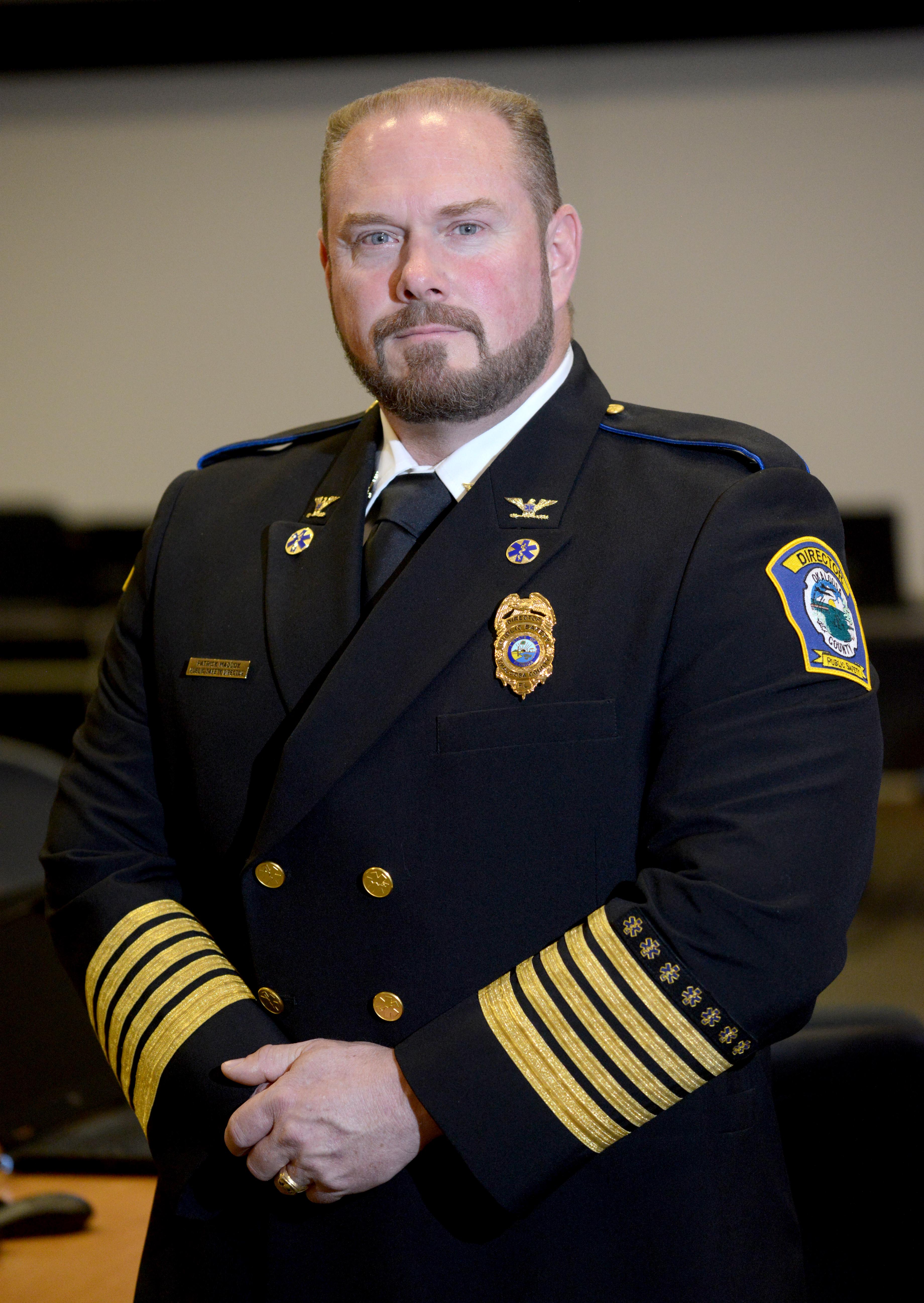Public Safety FAQ
Frequently Asked Questions
Q: Why do they ask so many questions when I dial 911? Why don't they just send help?
A: The first question a dispatcher will ask when you dial 911 is "Police, Fire, or Ambulance?" These call-takers will verify your address and determine the general nature of the call. As the call-taker is talking to you, they are entering data into a Computer-Aided Dispatch system. Another dispatcher reads the information from the computer and radios the information to responders. They dispatch the call very quickly, even while you are answering questions. The call-taker will continue asking you questions about your emergency so they can determine if additional help should be sent, and to provide you with "Pre-Arrival Instructions," such as giving step-by-step instructions on CPR or (as happens more often than you might think) instructions for delivering a baby.
Q: Why does a fire truck come to my house when I call for an ambulance?
A: Firefighters in most jurisdictions within the county provide first response in a medical emergency. Police Officers and Sheriff's Deputies often provide first response as well. There are more fire stations than EMS stations, so they may be much closer and arrive more quickly. Firefighters can provide life-saving intervention (such as CPR), remove the victim from a hazardous environment, dress wounds, and other basic life support until the EMS ambulance arrives. The EMS personnel then perform advanced life support techniques (using drug protocols, intubation, etc.) and transport the patient to the proper facility. Law enforcement, the fire service, and EMS work together as a patient care team, ensuring that you quickly get the life saving and sustaining help you need.
Q: Why is 911 better than just dialing the 7-digit number for the fire department, police, or ambulance?
A: When people dial 911, it may be the most frightening and vulnerable moment of their lives. In such situations, most people have difficulty remembering the phone numbers for the different agencies. Tourists won't know what number to call. Even if you memorized the number for your city or zone, what if you were visiting a friend in, say Destin; would you know what number to call if they suddenly had a heart attack or the heater caught fire? The 911 system automatically routes the call to the proper agency based on the jurisdiction of the call. Plus, it is much easier to teach a young child to dial 911. The 911 system automatically provides the dispatcher with the address where the 911 call originated. This can be vitally important when the caller is unable to speak or passes out, or if the caller is a child.
Q: How much does it cost for an ambulance to take me to the hospital?
A: The Board of County Commissioners approves our rates. We charge this fee in order to reduce the tax burden for operating an emergency medical service. If we were to function solely like a business, we would want to close down operations that were not profitable. So, for example, we might close the ambulance station in Baker because it does not generate enough revenue. If we did this, however, our response times to rural areas and western portions of the Interstate would be dangerously long. From a purely business point of view, we would also close the Destin ambulance station after midnight - but this would also result in dangerous delays when people are sick or injured in the southeast corner of the county. We try to operate with sound business principles, but we must also keep in mind that our mission is public safety. Please click here for current billing rates.
Q: How am I warned about severe weather or other impending calamities?
A: Through radio and television broadcasts. If you notice dark clouds on the horizon, you should monitor local radio or TV stations for warnings. During hurricane season, you should check for developing storms at least twice a day. If there is an active storm, you should check at least four times a day. Hurricane situations can change very quickly. If a hurricane or tropical storm is threatening the Gulf Coast, you should frequently check local radio and TV broadcasts not just the Weather Channel. The local stations will broadcast detailed instructions that affect you.
Q: Why don't you use sirens or public address systems to alert the public about severe weather?
A: Research and the experience of other jurisdictions shows that sirens would not be a good investment in this area. They work well in areas like Kansas because of the flat terrain, lack of vertical obstructions, and the fact that they are used only for tornadoes. In our county, sirens would be much less effective due to the tall condominiums in the south and hilly terrain in the north, the sound of ocean surf, and closed windows and air conditioners. We would have to install a prohibitively high number of sirens for them to be effective. It would cost a quarter-million dollars just to effectively cover the coastline - not to mention inland areas of Ft. Walton Beach, Niceville, and Crestview. The annual maintenance costs would be very high. Also, we are prone to several different hazards -- flash flooding, severe thunderstorms and tornadoes, river floods, hurricanes, and hazardous material spills to name a few. Some people would want us to set off the sirens whenever there was a threat of any of these, while others would expect us to use them only for tornadoes. This competition of expectations would lead to confusion and discontent, as has happened in other jurisdictions. In the end, we feel we would have spent a lot of money to no good end and just upset a lot of people.
Q: Why is "AMBULANCE" spelled backwards on the front of the ambulance?
A: So drivers can read it correctly when they look in their rear-view mirrors.


